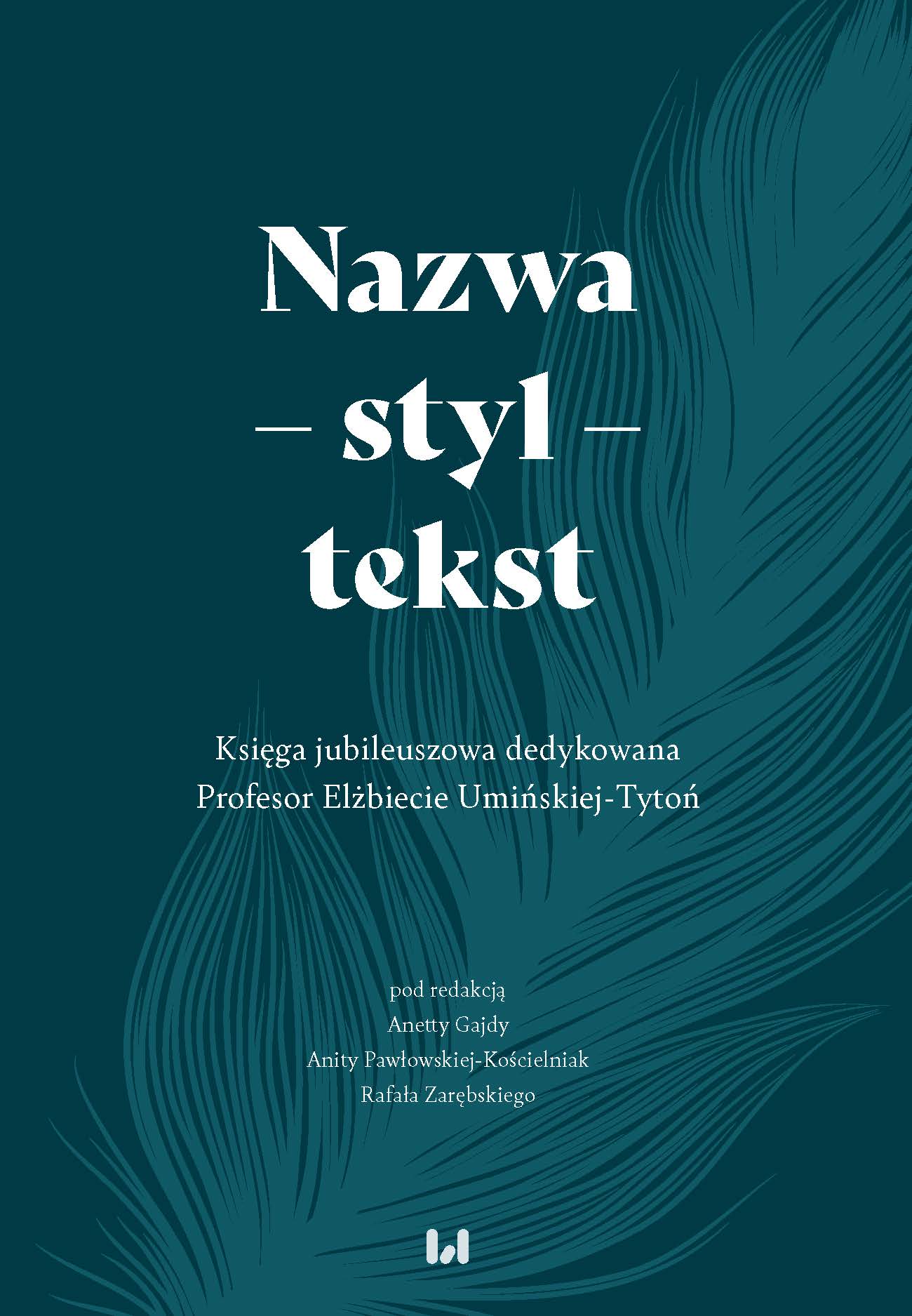Między literackością a potocznością Janina Konarska: Dwór na wulkanie. Dziennik ziemianki z przełomu epok 1895–1920
Between the literary and colloqvial in the diaries (1895–1920) by Janina Konarska from 1914–1920
Author(s): Agnieszka Zatorska
Subject(s): Language and Literature Studies, Theoretical Linguistics
Published by: Wydawnictwo Uniwersytetu Łódzkiego
Keywords: The Literary Polish; the Colloqvial Polish; diaries; the First World War; stylistic
Summary/Abstract: This article is devoted to a set of linguistics features of the diaries (1895–1920) by Janina Konarska from 1914–1918. The author of the study analyses the manifestations of the Literary Polish language and the Colloquial Polish language in the examined texts. The signs of literacy are: eruditional lexis: aeroplan ‘areoplane’, emablować ‘amuse (woman)’, fraucymer ‘maids of honor’, zeppelin; sublime collocations: kraina krzyżów i mogił ‘the land of crosses and graves’ (p. 159); metaphores: na szczyt chwały poprowadzić ‘to lead to the top of glory’ (p. 135). The commonness signals are some expressions describing everyday life and food needs: dużo jabłek ‘a lot of apples’, kartofle ‘potatoes’ and problems of supply difficulties: najgorzej z cukrem ‘worst with sugar’; Mięsa zupełnie nie jadamy ‘We don’t eat meat at all’ (p. 283). Some colloqvial verbal lexems are excerpted: drapnął ‘He escaped’ (p. 159) władze ruskie zmykają ‘the Russian authorities are running away’ (p. 111) as well as some colloqvial phraseologies, eg. chyba pójdziemy do Tworek ‘We will probably get mad’ (p. 186), w skórę dać ‘spanking’ (p. 1 50). The Nominalizations are confirmed by the both stylistic varieties. They reflect both war events: bój ‘fight’ (p. 130), wysadzenie mostu ‘blowing up the bridge’ (p. 170) and minor incidents: szukanie swoich torebeczek ‘looking for your bags’ (p. 145). The stylistic means of evaluation are demonstrated in the diary, eg. biedne te Kielce ‘poor Kielce’ (s. 121), okropne zajścia w Belgii ‘the horrible incidents in Belgium’ (p. 126), straszne czasy ‘terrible times’ (p. 122); dzielne Legiony ‘brave Legions’ (p. 284), wspaniały koncert ‘magnificent concert’ (p. 260). The superlative forms of adjectives are observed: Najokropniejsze jest to żołdactwo ‘The soldiery is the most horrible’ (p. 177), najpiękniejsze było to zjednoczenie duchowe całego niemal świata ‘The most beautiful was the spiritual union of almost the entire world’ (p. 262). The conclusion from the research is that the Konarska’s diary from the Great War is characterized by the stylistic diversity and richness of stylistic means.
Book: Nazwa – styl – tekst. Księga jubileuszowa dedykowana Profesor Elżbiecie Umińskiej-Tytoń
- Page Range: 317-333
- Page Count: 17
- Publication Year: 2023
- Language: Polish
- Content File-PDF

